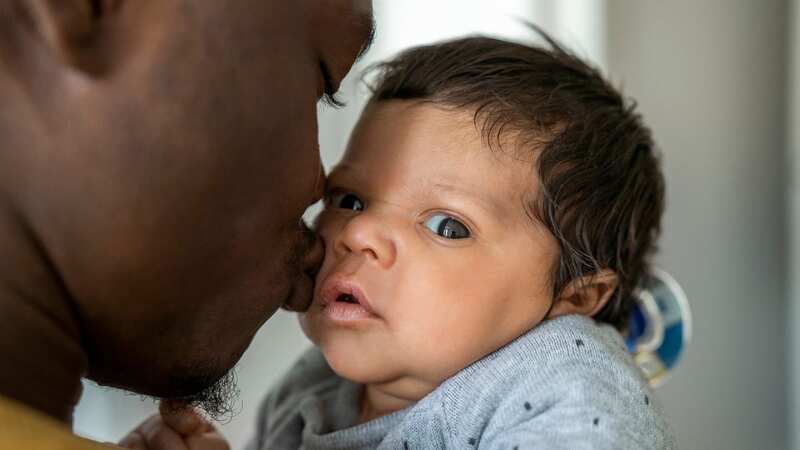Victorian disease outbreak will spread to more towns unless kids vaccinated

The measles outbreak will spread to more towns and cities unless children are urgently vaccinated, the UK Health Security Agency has warned.
Chief executive Dame Jenny Harries said a national “call to action” is needed because we have “forgotten” how bad measles is.
Measles cases have doubled in a year amid the biggest outbreak since the 1990s and unvaccinated children in parts of the Midlands are being forced to isolate them from school for up to three weeks. It comes as the UKHSA has issued a “national call to action” that is needed across the country to ensure every child is vaccinated.
Professor Dame Jenny Harries, who became known to the public during the coronavirus pandemic, has warned that measles is spreading fast among unvaccinated communities. As the chief executive of the UKHSA Prof Harries is urging parents to check their children have had both jabs of the MMR vaccine.
Figures released by the UKHSA show there were 198 lab-confirmed cases and 104 “likely” cases between October and January in the West Midlands and vaccination rates across the country have been dropping, with particular concerns about some regions, including parts of London and the West Midlands.
 Baby boy has spent his life in hospital as doctors are 'scared' to discharge him
Baby boy has spent his life in hospital as doctors are 'scared' to discharge him
Four-fifths of the cases have been found in Birmingham while 8 per cent were identified in Coventry, with the rest spread around the West Midlands. Ahead of her visit to Birmingham Dame Jenny told BBC Radio 4’s Today programme that people have “forgotten what measles is like”, and that children can be unwell for a week or two with symptoms including a nasty rash, high fever and ear infections. She added that the virus is highly infectious.
There can also be serious complications, hospital admissions and death. “The focus this morning obviously is on the West Midlands and I’m going there, but I think the real issue is we need a call to action right across the country,” she said. “We had established measles elimination status in the UK, but in fact, our vaccination rates now have dropped on average to about only 85% of children arriving at school having had the two MMR doses.
“In the West Midlands, that’s in some areas down to 81%, (and) if we go down to the Surrey Heartlands Integrated Care Board area, that’s just over 70%. So we are well under the recommended coverage for MMR vaccination that the WHO (World Health Organisation) recommends.”
Asked which communities were affected, she said: “This is an important point, I think, for the West Midlands, for those in Muslim communities, they will be not keen to take up one of the MMR vaccines that we offer which has a pork-based derivative. But it’s really important that they’re aware there is a non-porcine vaccine which is available to them and very effective. So it’s that sort of understanding and ensuring that knowledge is available to people so they can make choices.”
She said the vaccine programme in the UK is “clearly not” where the UKHSA wants it to be, adding “We want it to be 95% (coverage)”. She added: “It’s quite common with vaccination programmes that when the risk is perceived to have gone away, then the concern to get vaccinated may drop off and so one of the reasons for flagging this today is to remind people that cases are still out there. This is a serious illness.”
The UKHSA carried out a specific risk assessment last July in London because up to 20% of children were entering school unvaccinated. Dame Jenny said this was a “significant risk” to the population in London. "Thankfully, many families have come forward and children have been vaccinated, but the rates remain low,” she added. “Now… predictably, we’re seeing that swing move to other, particularly inner city areas, where we know vaccination rates are low.
“This is a call right across the country for all parents to check the vaccination rates of their children and also, one of our most unvaccinated populations are young adults (born around 1998 to 2004)… and many of those now, of course, will be in frontline work, so things like young teachers, and it’s really important that they also get vaccinated with MMR.”
Dr Ronny Cheung, officer for health services at the Royal College of Paediatrics and Child Health said earlier this week that measles “at best will cause children great discomfort and at worst deaths” and the virus is “almost entirely preventable” with the MMR vaccine. Dr Cheung said parents were more likely to report wider concerns or say they were unaware that they could catch up on vaccines if they had missed the initial offer.
Helen Bedford, professor of children’s health at UCL Great Ormond Street Institute of Child Health, added: “Measles is a potentially very serious infection. About one in 1,000 people with measles develop inflammation of the brain and even in high-income countries like the UK, about one in 5,000 die from the infection. Measles is often more severe in adults. Apart from managing the symptoms of measles, there is no treatment. There is no upper age limit for vaccination so if you or your loved ones have missed out, now is the time to get that protection. We can stop this infection in its tracks with vaccination.”
Read more similar news:
Comments:
comments powered by Disqus

































